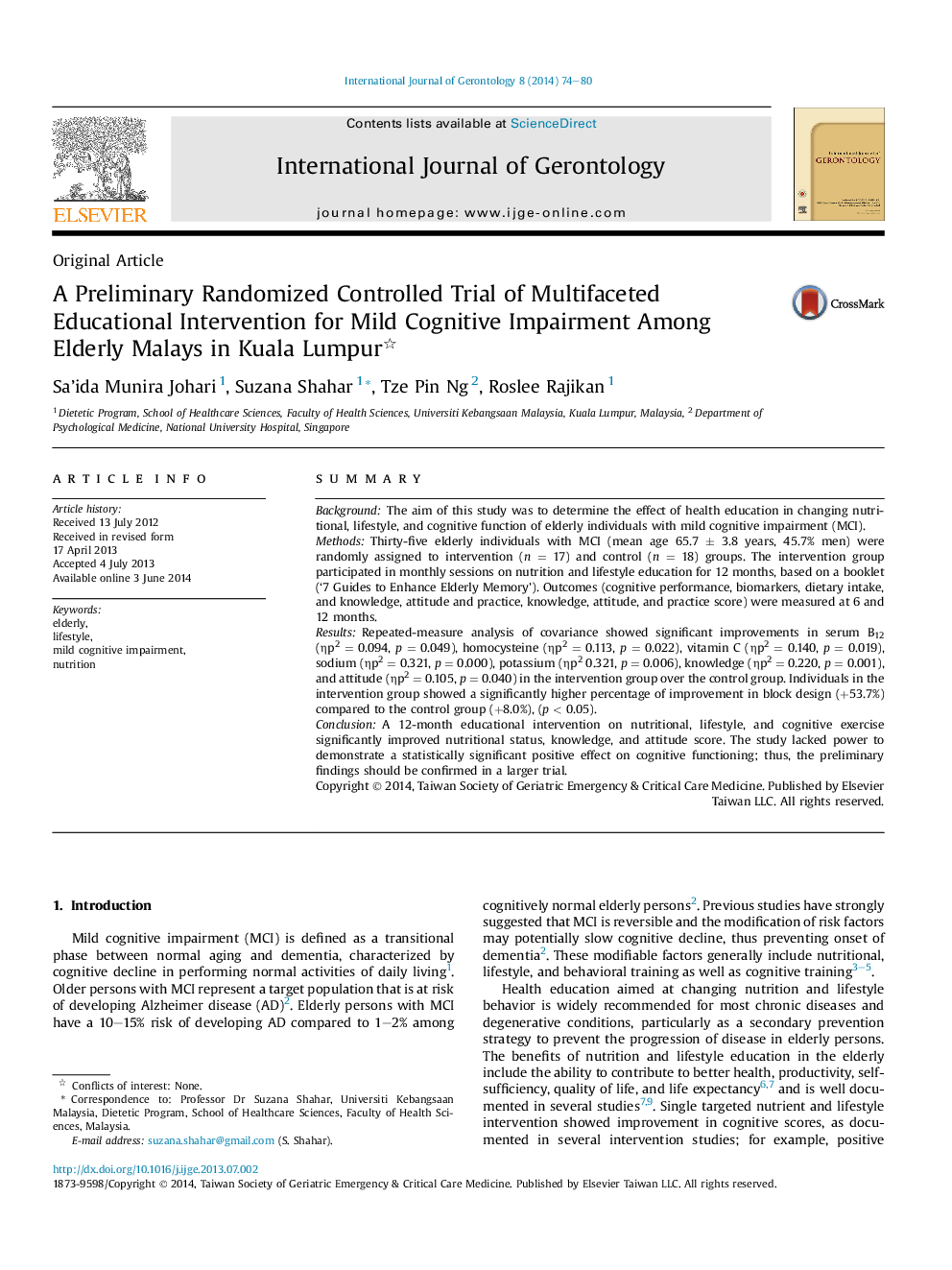| Article ID | Journal | Published Year | Pages | File Type |
|---|---|---|---|---|
| 3325223 | International Journal of Gerontology | 2014 | 7 Pages |
SummaryBackgroundThe aim of this study was to determine the effect of health education in changing nutritional, lifestyle, and cognitive function of elderly individuals with mild cognitive impairment (MCI).MethodsThirty-five elderly individuals with MCI (mean age 65.7 ± 3.8 years, 45.7% men) were randomly assigned to intervention (n = 17) and control (n = 18) groups. The intervention group participated in monthly sessions on nutrition and lifestyle education for 12 months, based on a booklet (‘7 Guides to Enhance Elderly Memory’). Outcomes (cognitive performance, biomarkers, dietary intake, and knowledge, attitude and practice, knowledge, attitude, and practice score) were measured at 6 and 12 months.ResultsRepeated-measure analysis of covariance showed significant improvements in serum B12 (ηp2 = 0.094, p = 0.049), homocysteine (ηp2 = 0.113, p = 0.022), vitamin C (ηp2 = 0.140, p = 0.019), sodium (ηp2 = 0.321, p = 0.000), potassium (ηp2 0.321, p = 0.006), knowledge (ηp2 = 0.220, p = 0.001), and attitude (ηp2 = 0.105, p = 0.040) in the intervention group over the control group. Individuals in the intervention group showed a significantly higher percentage of improvement in block design (+53.7%) compared to the control group (+8.0%), (p < 0.05).ConclusionA 12-month educational intervention on nutritional, lifestyle, and cognitive exercise significantly improved nutritional status, knowledge, and attitude score. The study lacked power to demonstrate a statistically significant positive effect on cognitive functioning; thus, the preliminary findings should be confirmed in a larger trial.
